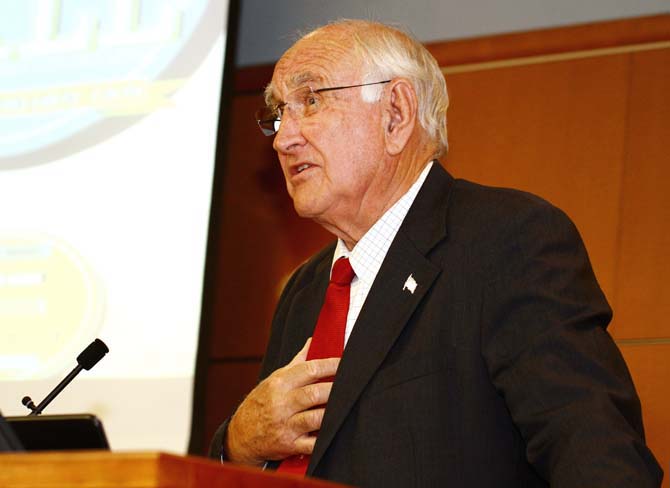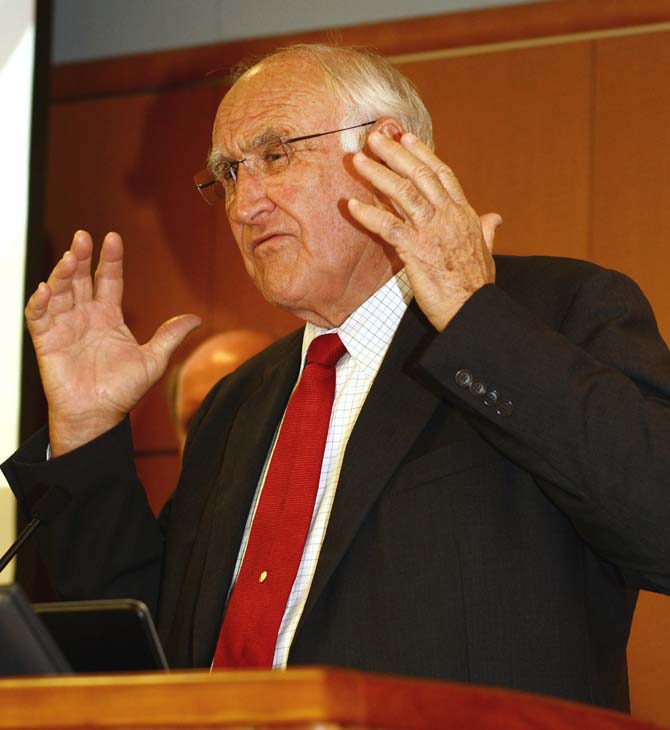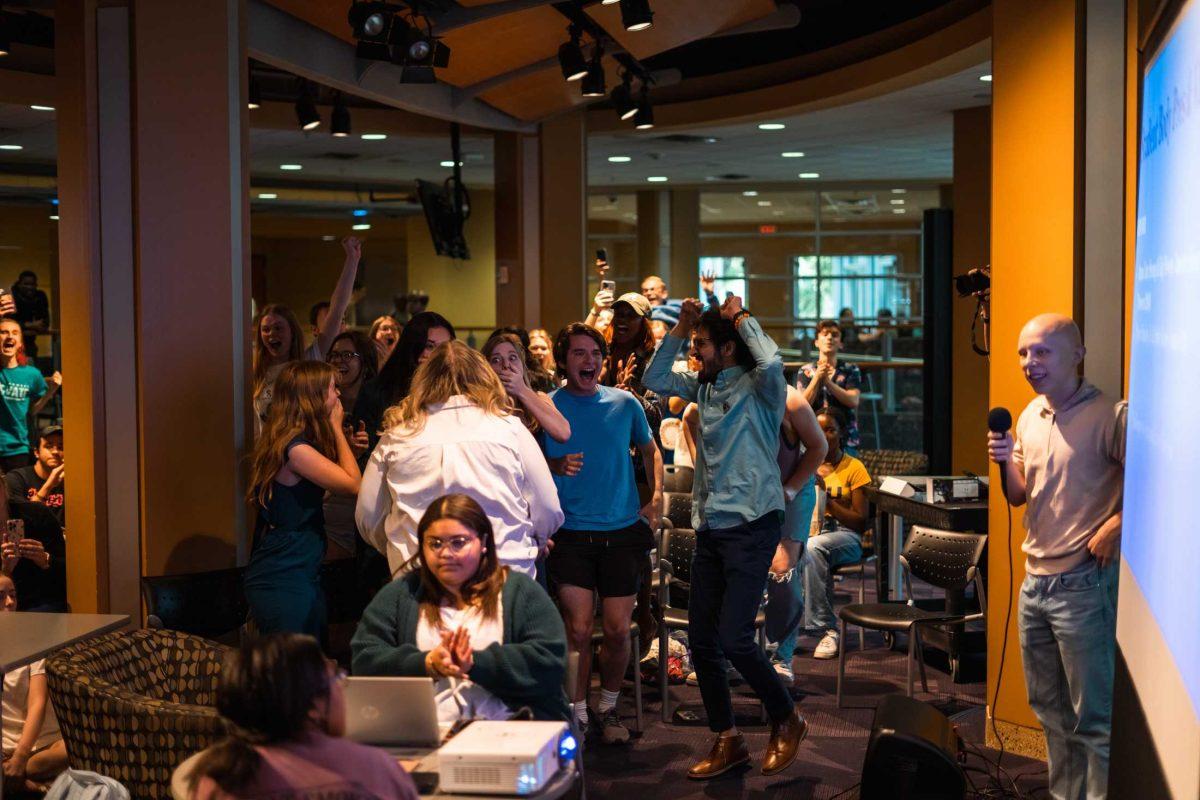More than 30 students engaged University administrators at Tuesday’s Student Government Town Hall meeting, asking questions ranging from parking to the plus-minus grading system to the University’s budget cuts.
Students shared their concerns about the lack of campus signage informing them of where they’re allowed to park.
Gary Graham, director of the Office of Traffic and Transportation, told students that the University is in the process of improving the signage for the community.
“It’s probably about a $2.5 million dollar system,” Graham said. “We may have done a third of it so far, so some of this is ongoing [and] we’re replacing the old with the new, so we’re looking at that and we’ll be constantly updating all of those signs as we move on.”
Executive Vice Chancellor and Provost Stuart Bell answered questions about Faculty Senate’s recent decision to approve a plus-minus grading scale for students.
Bell told students the University is reviewing what needs to be modified and purchased for the new grading system to be implemented in the next few years.
“We need to begin identifying what that timeline would be, and what I can tell you is that there’s a lot of work to do. I’m not talking about implementing something next fall — physically, we just can’t get there,” Bell said.
T Graham S. Howell, public relations junior and SG’s deputy chief, asked if Faculty Senate’s resolution for the grading scale proposal had a greater influence on the administration’s opinion of the proposal than Student Government’s resolution.
Bell told Howell that Faculty Senate’s rulings focus on the impact of the curriculum, but also suggested that they consider the impact it has on students.
Andrea Neal, history and political science senior, asked Interim President and Chancellor William “Bill” Jenkins if programs that were cut, like foreign languages, would return.
Jenkins said he’s passionate about the issue and he’ll be engaged with the issue in the next legislative session.
“We have to at least have secure, and if at all possible, at least secure state funding,” Jenkins said.
Jenkins and other administrators stressed how important it was for students to let their opinions be heard.
“We have to depend on you. It’s your eyes and ears, but remember: you own this campus, you will own the one LSU is whenever that’s configured. This is yours,” he said.
Interim chancellor William Jenkins expresses the importance of maintaining the flagship university Tuesday, Oct. 16, 2012 during the LSU Town Hall meeting hosted by Student Government in the LSU Student Union.









